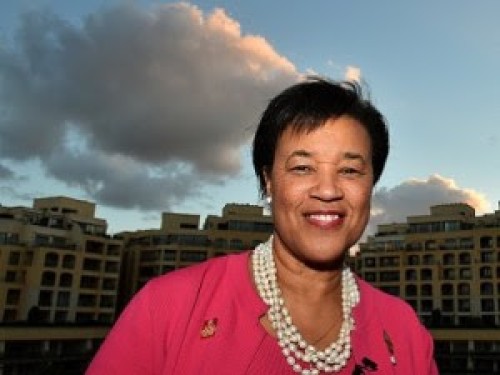The Fierce Urgency of Now
BRIDGETOWN, Barbados - In 1967, American civil rights leader Dr Martin Luther King said in a speech, “we are now faced with the fact that tomorrow is today. We are confronted with the fierce urgency of now. In this unfolding conundrum of life and history there is such a thing as being too late.” For far too many in the world today affected by our changing climate, this statement is an urgent truth.
 Patricia ScotlandAs a Caribbean woman, who has consistently championed the rights of small island developing states, I know that the time for decisive action is now. The Bridgetown Initiative, led by Barbados’ inspirational Prime Minister, the Hon Mia Mottley, calls for the reform of the global financial architecture. It also proposes a new mechanism, with private sector backing, to fund climate mitigation and reconstruction after climate disasters through the provision of emergency liquidity and an expansion of multilateral lending.
Patricia ScotlandAs a Caribbean woman, who has consistently championed the rights of small island developing states, I know that the time for decisive action is now. The Bridgetown Initiative, led by Barbados’ inspirational Prime Minister, the Hon Mia Mottley, calls for the reform of the global financial architecture. It also proposes a new mechanism, with private sector backing, to fund climate mitigation and reconstruction after climate disasters through the provision of emergency liquidity and an expansion of multilateral lending.
Reform of the global financial architecture is essential to enhance access to international finance for vulnerable countries.
Multilateral development banks, and the countries that fund them, have been asked to consider amending their risk model to reflect the true situation of the countries they seek to help. The model also needs to consider the major disruption caused by climate events. To be fair, within these institutions, there seems to be an evolutionary appetite for change. However, I suggest that the changes needed are substantial and immediate.
Innovative financing initiatives are needed to manage public finances and debt, including efforts to enhance existing debt restructuring initiatives and to minimize vulnerabilities. While the international community responded more recently with initiatives such as the Debt Service Suspension Initiative (DSSI) and Common Framework for debt restructuring, most developing countries continue to experience challenges of indebtedness.
In 2017, Dominica was devastated by Hurricane Maria. The World Bank estimated damage at US$1.37 billion or 226 per cent of GDP. In 2023 the country is still struggling to recover. Extreme weather events even challenge countries with a higher GDP per capita. The Bahamas, classified as a high-income country, was overwhelmed by Hurricane Dorian in 2019 and had to seek external support.
These incidents are not confined to the Caribbean. In recent days, weeks and months, Bangladesh and its neighbors have been hit by Cyclone Mocha, Rwanda by floods and landslides, and in March, the Pacific Island of Vanuatu was hit hard by two cyclones within two days. Around the same time, Cyclone Freddy had a devastating impact on Malawi, Mozambique and other Southern African countries. These events are increasing in frequency and intensity and are the new normal.
Climatic disasters can result in countries being knocked off their growth trajectory for years. Using GDP per capita as an index is helpful, but it only captures part of a story. The Caribbean is full of storytellers – we can paint a vibrant picture with words and captivate an audience with a calypso. I, along with other leaders across the Commonwealth, am hopeful that we will convince decision-makers of the international financial system, and their funders, that a more accurate metric that captures vulnerability to classify countries is necessary.
We, at the Commonwealth, are proposing radical reforms to enable countries to access much-needed finances and borrowing at concessionary rates to ensure equitable development. Both the United Nations Multi-dimensional Vulnerability Index (UN-MVI) and the Commonwealth Universal Vulnerability Index (UVI) are credible models that go beyond simple GDP-based criteria and recognise the interconnections between economic, environmental and socio-political risks. Given the challenges that many nations face, we must urgently move to support reforms and models such as these to improve access to financing for vulnerable nations.
My team and I engaged with stakeholders at the Paris Summit for a new global financial pact this week, and we will continue to take this message of increased equity and fairness directly to those who can make that change. We will continue to advocate for a global financial architecture that is relevant and fit for purpose as we work to achieve a more prosperous, resilient and sustainable future for all.
The time for action is not tomorrow. I, and many like me, are driven by a fierce urgency because we know that the time for action is now.
Patricia Scotland KC is the 6th Commonwealth Secretary-General and the first woman to hold the post.


